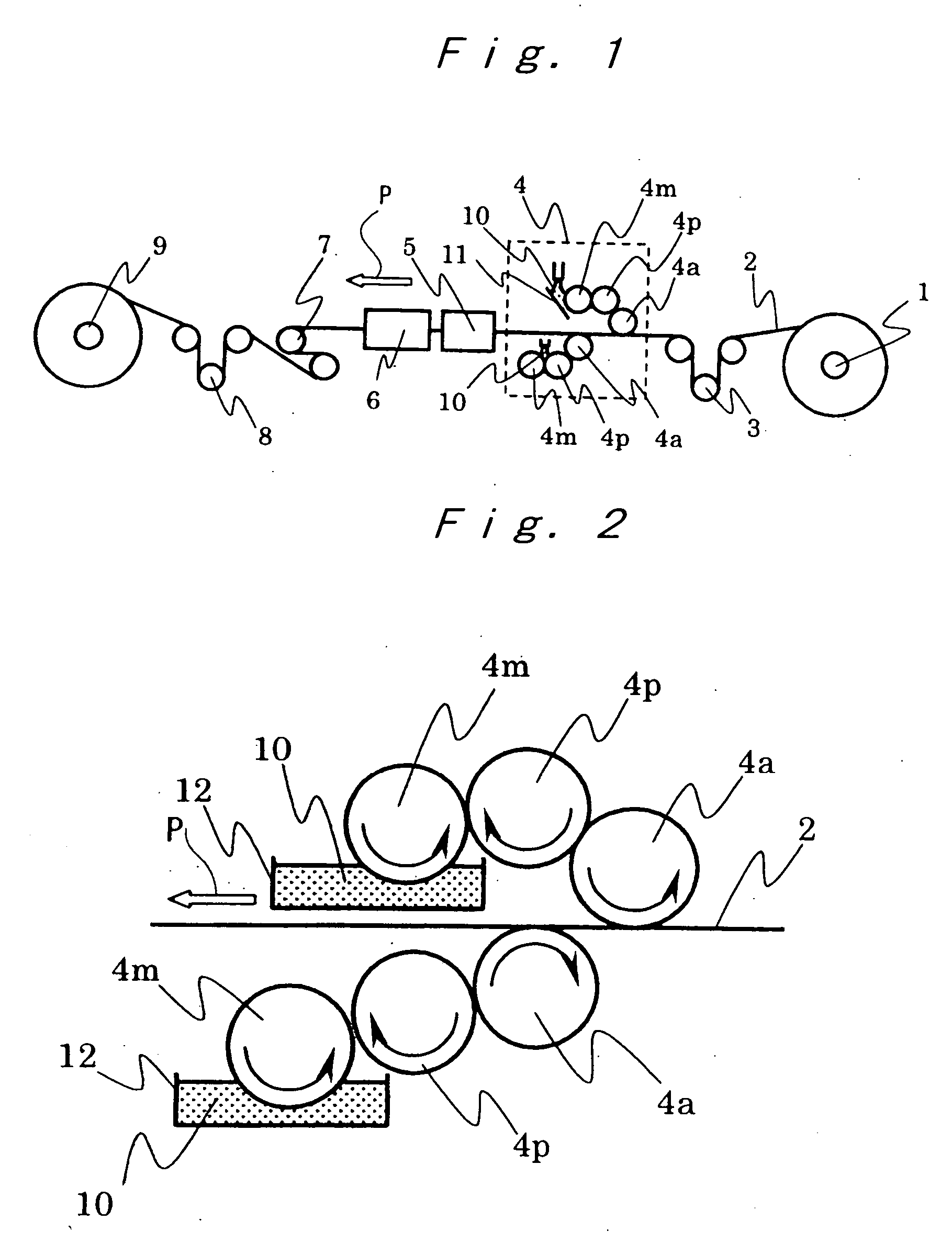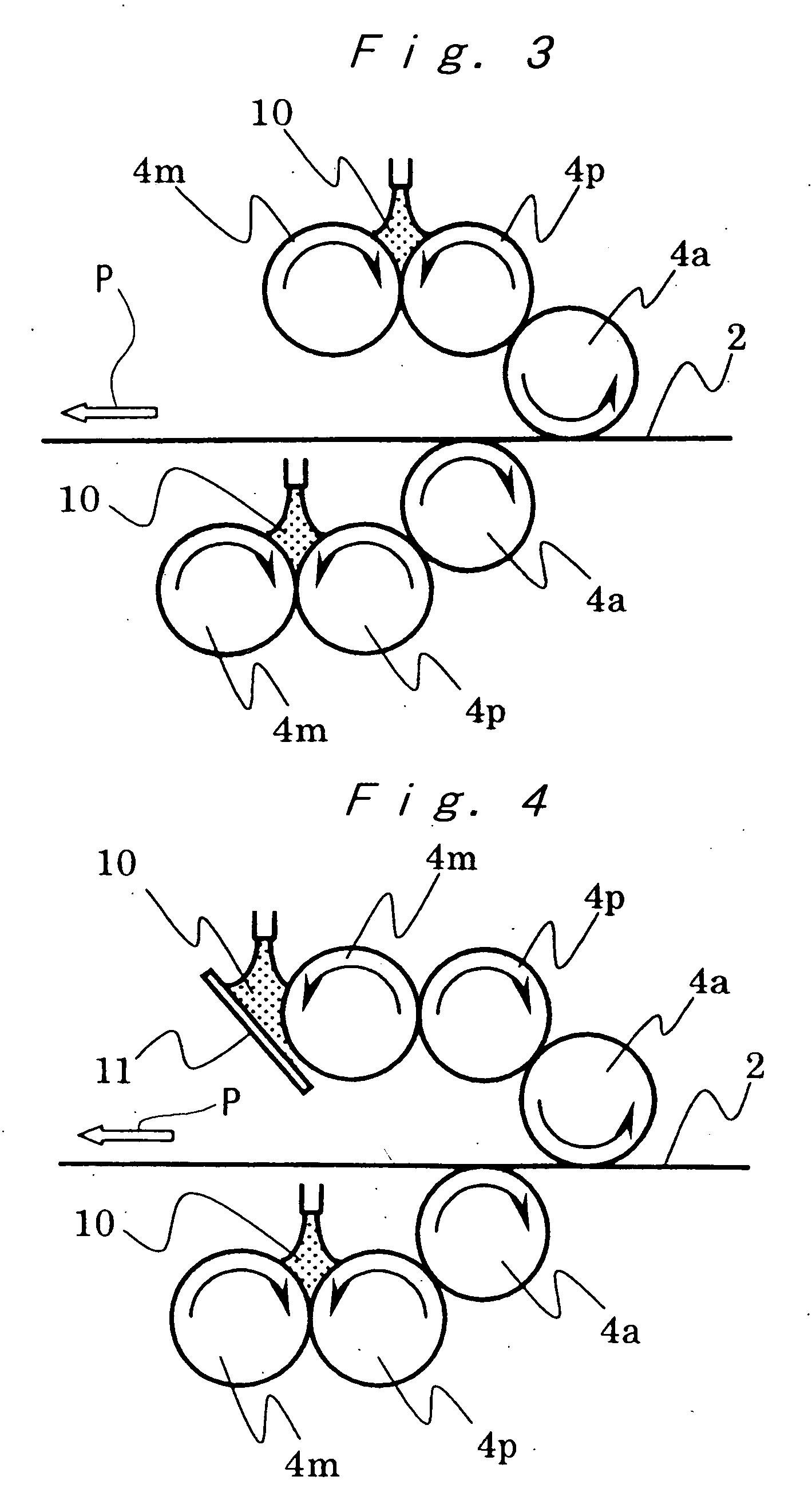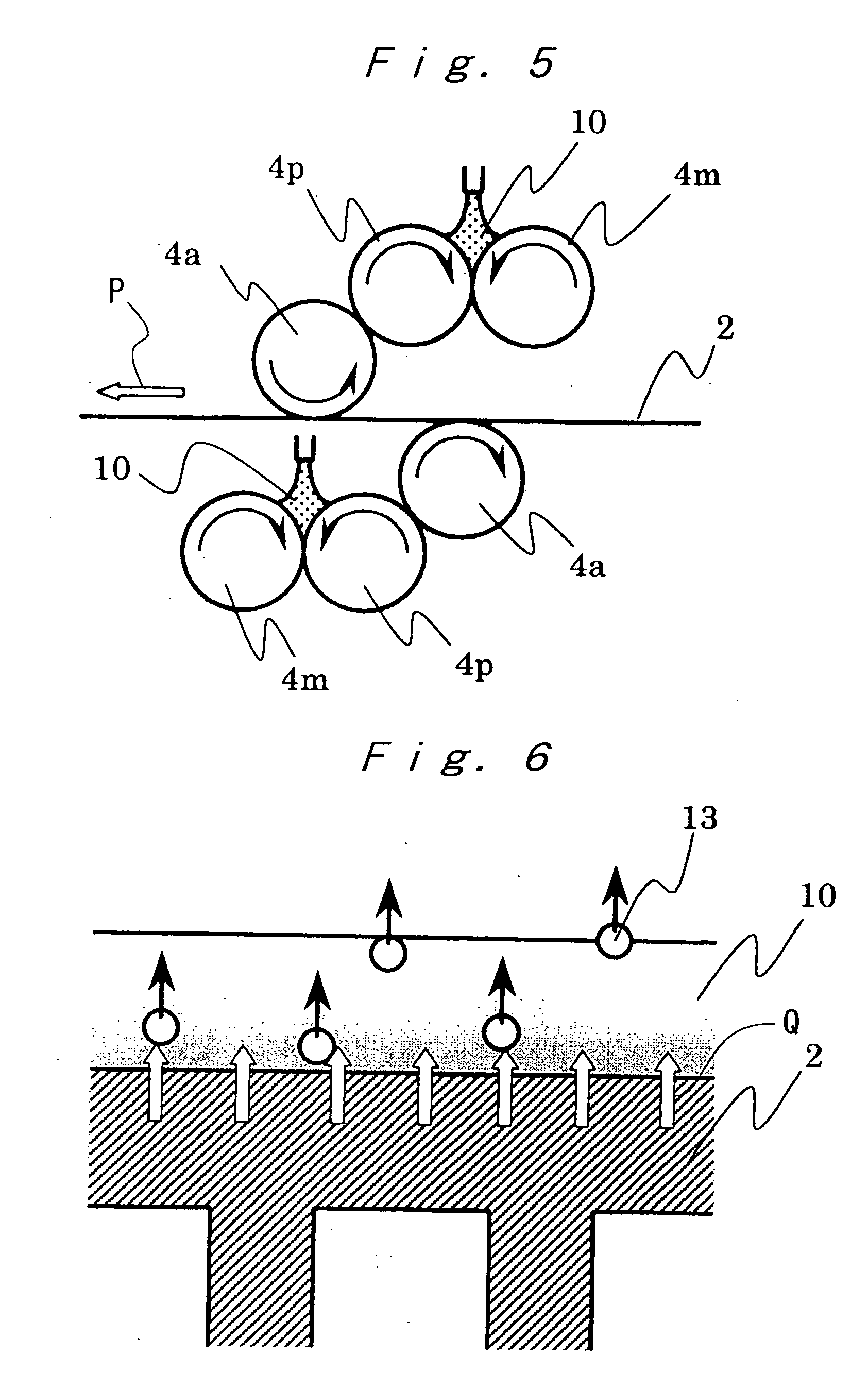Coating apparatus for an aluminum alloy heat exchanger member, method of producing a heat exchanger member, and aluminum alloy heat exchanger member
a technology of heat exchanger and coating apparatus, which is applied in the direction of soldering apparatus, manufacturing tools, light and heating apparatus, etc., can solve the problems of poor adhesion of flux after application, increase production cost, and inability to exert objective
- Summary
- Abstract
- Description
- Claims
- Application Information
AI Technical Summary
Benefits of technology
Problems solved by technology
Method used
Image
Examples
example 1-1
[0129] A flat multi-cavity tube 2 made of an A1050 aluminum alloy (19 cavities, 16 mm in width, 1.8 mm in high, 1.0 mm×0.6 mm in cavity size, and 0.3 mm in thickness) extruded by means of a conform extrusion method, was used; and both the top and back sides of the tube 2 was coated, with a coating apparatus as shown in FIG. 1, under the conditions of a coating chamber temperature of 25° C. The moving speed of the flat multi-cavity tube at the time of application of the coating was 80 m / min, the circumferential speed of the applicator roll 4a (200 mm in outer diameter) was 100 m / min, the circumferential speed of the pickup roll 4p (200 mm in outer diameter) was 50 m / min, and the circumferential speed of the metering roll 4m (200 mm in outer diameter) was 15 m / min. The transferring method for each roll was of the A system, as shown in FIG. 4. That is, the applicator roll 4a and the metering roll 4m were rotated in the direction opposite to the moving direction of the flat multi-cavity...
example 1-2
[0130] Sample Nos. 5 to 8 shown in Table 1 were prepared in the same manner as in Example 1-1, except by using the system B as shown in FIG. 5, as a roll transfer system, but other conditions were the same as those of Example 1-1. The thus-prepared coated materials were subjected to the brazing process under the same conditions as those of Example 1-1. The furnace length of the induction heating furnace was 1 m for the production speed of 80 m / min (Nos. 1 to 3 and 5 to 7), or 2 m for the production speed of 160 m / min (Nos. 4 and 8).
reference example 1-1
[0132] Sample Nos. 13 to 16 were prepared in the same manner as in Example 1-1 under the conditions including the roll transfer system and the coating's characteristics, except that the hot air furnace 14 was used for the drying method as shown in FIG. 8. The temperature of an atmosphere inside the hot air furnace 14 in the drying method was set to be 220° C. The reason for setting at 220° C. is as follows. A normal brazing process is inhibited as an acryl resin component is decomposed when the sample is heated at a temperature over 230° C., so the above 220° C. is the highest heating temperature within the range that does not exert any influence on the brazing process. The hot air furnaces of 1 m, 4 m, and 8 m in furnace length were used, respectively. The thus-prepared coated materials were subjected to the brazing process under the same conditions as those of Example 1-1.
[0133] The thus-applied coated layer was evaluated for coating characteristics including adhesion property, b...
PUM
| Property | Measurement | Unit |
|---|---|---|
| Ra | aaaaa | aaaaa |
| Ra | aaaaa | aaaaa |
| particle diameter | aaaaa | aaaaa |
Abstract
Description
Claims
Application Information
 Login to View More
Login to View More - R&D
- Intellectual Property
- Life Sciences
- Materials
- Tech Scout
- Unparalleled Data Quality
- Higher Quality Content
- 60% Fewer Hallucinations
Browse by: Latest US Patents, China's latest patents, Technical Efficacy Thesaurus, Application Domain, Technology Topic, Popular Technical Reports.
© 2025 PatSnap. All rights reserved.Legal|Privacy policy|Modern Slavery Act Transparency Statement|Sitemap|About US| Contact US: help@patsnap.com



